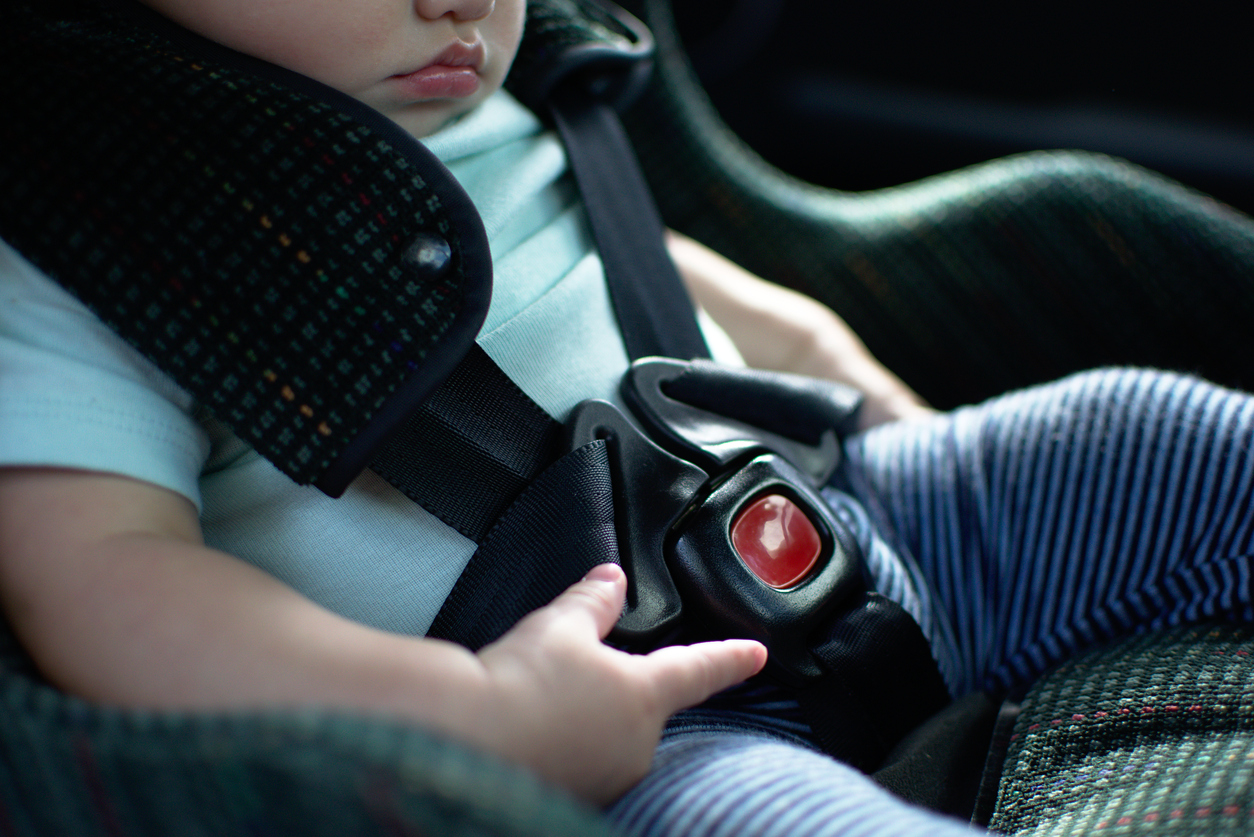Car and Booster Seat Laws in Florida
Perenich, Caulfield, Avril & Noyes Personal Injury Lawyers | Florida Law

The Center for Disease Control states that injuries due to transportation are the leading cause of death for children in the United States. Each year, millions of children are involved in motor vehicle accidents, including vehicle passengers, pedestrians, and bicyclists.
According to the FLHSMV, there were 127,285 children involved in traffic crashes statewide in 2019. These car crashes resulted in 142 childhood deaths and 1,361 cases of serious bodily injury. Possible injury was reported in 18,322 crashes.
Florida’s child restraint requirements for motor vehicles are intended to protect children in the event of a car accident. The car seat and booster seat laws require children to be secured in a safety seat for their protection.
Parents and caregivers who violate booster and car seat laws in Florida can face fines and penalties. Sadly, violating car seat laws can have more dire consequences, including death and catastrophic injuries.
What are the Laws Regarding Booster and Car Seats in Florida?
Florida’s laws regarding booster seats and car seats are based on a child’s age. All children under the age of 18 years must use a safety restraint when riding in a vehicle. Children under 12 years of age should sit in the back seat to avoid injuries from airbags.
All children five years of age and younger are required to ride in a federally-approved, crash-tested child safety seat. Children three years and younger must ride in a car seat integrated into the vehicle or a child seat installed correctly.
Once a child reaches four years of age, the child can ride in a booster seat integrated into the car or a separate seat correctly installed in the vehicle. After the child reaches six years of age, the child may ride in a vehicle with a seat belt.
Some exceptions exist for children with certain medical conditions or in the event of an emergency. In addition, some vehicles might be exempt from some of the child restraint requirements.
Choosing the Best Car Seat for Your Child
The best car seat for your child is based on your child’s age, weight, and height. The NHTSA provides recommendations for car seats. It also has detailed descriptions of child restraint systems for motor vehicles.
Car seat manufacturers provide weight and height restrictions for each type of child restraint system. The American Academy of Pediatrics recommends using a rear-facing car safety seat for infants and toddlers. The AAP recommends leaving a toddler in a rear-facing safety seat until the toddler outgrows the car seat.
Once a child outgrows the rear-facing car seat, the AAP recommends using a front-facing car safety seat. The seats should remain in the vehicle’s back seat as it is safer than the front seat. Again, the child should remain in the front-facing car seat until the child’s height or weight exceed the manufacturer’s specifications for the car seat.
Children may transition into a booster seat until they are tall enough for a seat belt. Generally, when a child reaches a height of four feet nine inches, a seat belt will fit correctly across the child’s lap and chest. Until then, the booster seat positions the seat belt correctly to provide maximum protection in the event of a car crash.
Can a Child File a Personal Injury Lawsuit in Florida?
Florida’s no-fault insurance laws apply to children who are involved in a motor vehicle accident. If a child is injured in a car wreck, the parent or guardian can file a PIP (no-fault insurance) claim.
PIP insurance covers up to 80 percent of the reasonable medical bills related to a car accident. However, there are restrictions. For example, the child must seek medical treatment within 14 days of the date of the accident.
If a child sustains serious injuries, the parents or guardians may be able to file a lawsuit against the at-fault driver. Serious injuries may include brain injuries, spinal cord injuries, paralysis, permanent impairments, significant disfigurement, amputations, and other severe injuries.
A personal injury lawsuit may provide compensation for the child’s damages, including:
- All medical expenses and bills related to treatment and care for accident injuries
- Personal care and long-term health care
- Loss of future wages and decreases in earning potential
- Compensation for developmental delays and emotional, cognitive, and physical impairments
- Pain and suffering damages, including physical pain, mental trauma, and emotional distress
The damages a child might recover depend on the severity of the child’s injuries and the facts of the case. If you have questions about your child’s injuries after a car crash in Florida, it is best to talk with a personal injury lawyer as soon as possible.
Contact the Pinellas County Car Accident Law Firm Of Perenich, Caulfield, Avril & Noyes Personal Injury Lawyers for Help
For more information, please contact the Clearwater and St. Petersburg car accident law firm of Perenich, Caulfield, Avril & Noyes Personal Injury Lawyers at the nearest location to schedule a free consultation today.
We serve in Pinellas County, and its surrounding areas:
Perenich, Caulfield, Avril & Noyes Personal Injury Lawyers – Clearwater
1875 N Belcher Rd. STE 201,
Clearwater, FL 33765,
United States
727-796-8282
Perenich, Caulfield, Avril & Noyes Personal Injury Lawyers – St. Petersburg
2560 1st Ave S,
St. Petersburg, FL 33712,
United States
(727) 349-1728